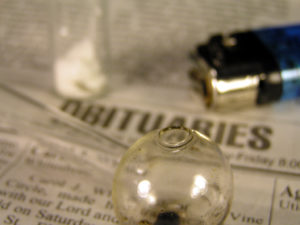How Do I Know I’ve Hit Bottom?

Hit Bottom: Those of us who experience increased physical tolerance for alcohol or drugs inevitably see an increase in our mental and emotional tolerance for pain, suffering and compromising our values.
Exactly what does it take to cause surrender? The unfortunate reality is past, present or future consequences, no matter how dire, are often not enough to cause a person to hit bottom and choose the path of recovery. That’s because hitting bottom, reaching the point when enough is enough, is an extremely personal thing. Some people in recovery describe having a moment when the pain and fear of staying in active addiction was greater than the pain and fear they felt about the recovery process. But the best definition I’ve heard recently was from a patient who defined hitting bottom by saying, “It’s when bad things are happening to me faster than I can lower my standards.”










